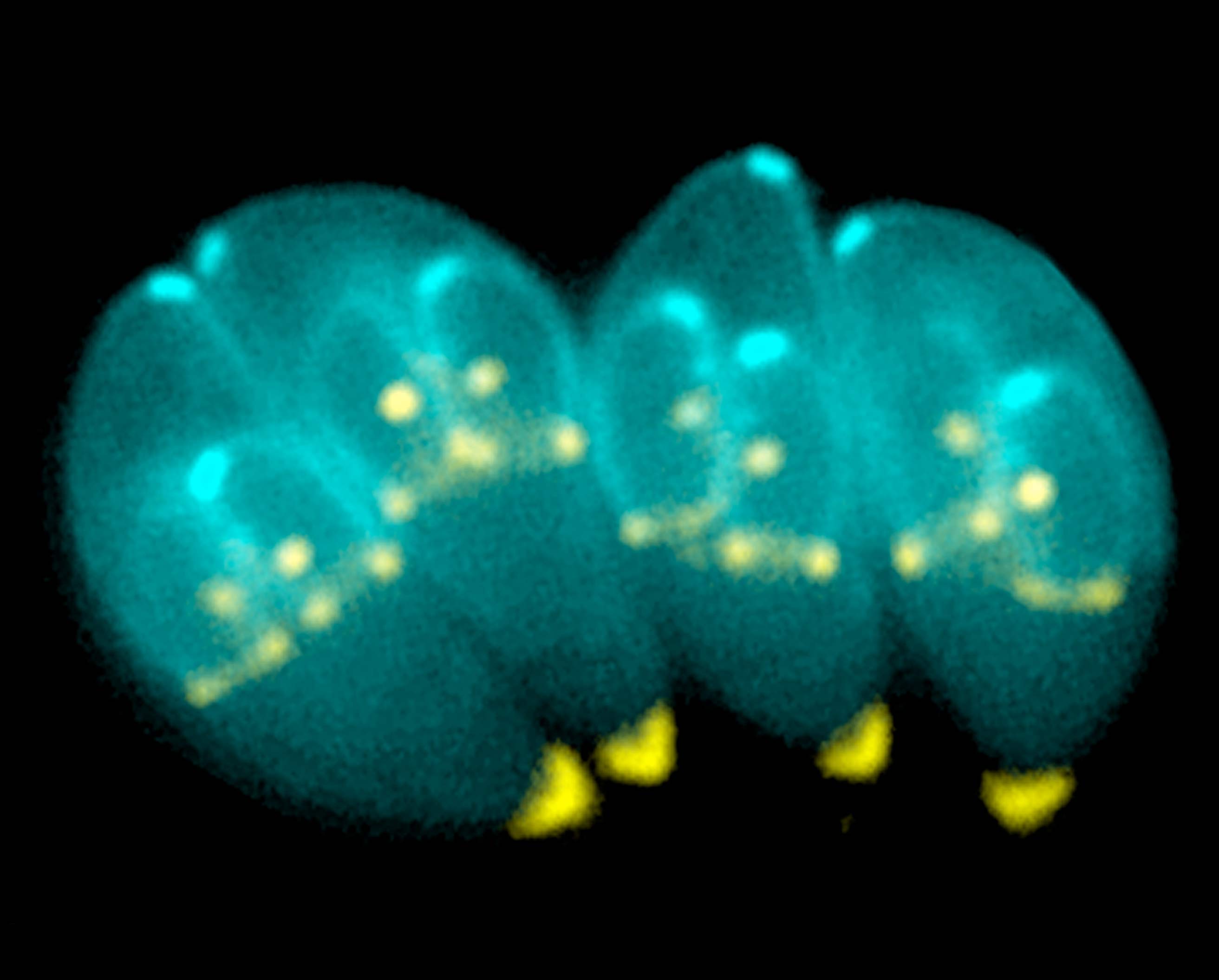Mind-Control Parasites Hijack Immune System, Too

A parasite known for its ability to influence the minds of its hosts also hijacks the immune system, a new study finds. In fact, the parasite uses cells that would normally help defeat it as transport to get around the body.
Toxoplasma gondii is a tiny parasite that infects about a quarter of the world's population. Most human infections are asymptomatic, though research has hinted the parasite might have subtle behavioral influences. Infected individuals are more likely to attempt suicide, for example, and T. gondii infection may increase brain cancer risk.
The parasite's real interests, however, are cats and rodents. T. gondii can live in any warm-blooded creature, but it prefers to end up in the gut of a cat, where it can breed. To do so, the parasite takes control of the minds of its rodent hosts, making the smell of cat urine sexually appealing to them rather than scary. That ups the chances a rodent will cozy up to a cat and get scarfed down, along with the parasite.
How T. gondii gets in
T. gondii spreads into humans through contact with infected animal feces or undercooked meat. Questions remain about how the parasite is so successful at evading the immune system and infecting the body, however. Swedish researchers led by Antonio Barragan of Karolinska University Hospital Huddinge in Sweden wanted to find out.
Earlier studies had found that an infection by T. gondii makes a certain type of immune cell go haywire. These cells, called dendritic cells, are spiny little free-floaters that move throughout the body's tissues. When a dendritic cell meets a foreign invader, it engulfs and processes it, carrying the pieces to lymph nodes, which then launch a full immune attack.
When infected by T. gondii, dendritic cells start moving at hyper-speed. Barragan and his colleagues suspected that the parasite might be invading the cells and using them to get around the body like a city bus, but they didn't know how. [Top 10 Most Disgusting & Diabolical Parasites]
Sign up for the Live Science daily newsletter now
Get the world’s most fascinating discoveries delivered straight to your inbox.
Chemical hijacking
By infecting both human and mice dendritic cells with the parasite, the researchers found the cells suddenly produced increased levels of GABA, a neurotransmitter that is important for brain cell function. GABA also makes dendritic cells go, the researchers found — infected cells making more of the chemical began moving in more random directions and did so faster than uninfected dendritic cells.
"For toxoplasma to make cells in the immune defense secrete GABA was as surprising as it was unexpected, and is very clever of the parasite," Barragan said in a statement.
The researchers then infected live mice with T. gondii and treated some of them with compounds that inhibit the release of GABA. They found that in treated mice, parasite levels were 2.8 times lower than untreated mice four days post-infection. Those findings suggest that T. gondii is indeed using the immune system as a free ride around the body.
The findings are published today (Dec. 6) in the open-access journal PLOS Pathogens.
Follow Stephanie Pappas on Twitter @sipappas or LiveScience @livescience. We're also on Facebook & Google+.

Stephanie Pappas is a contributing writer for Live Science, covering topics ranging from geoscience to archaeology to the human brain and behavior. She was previously a senior writer for Live Science but is now a freelancer based in Denver, Colorado, and regularly contributes to Scientific American and The Monitor, the monthly magazine of the American Psychological Association. Stephanie received a bachelor's degree in psychology from the University of South Carolina and a graduate certificate in science communication from the University of California, Santa Cruz.









